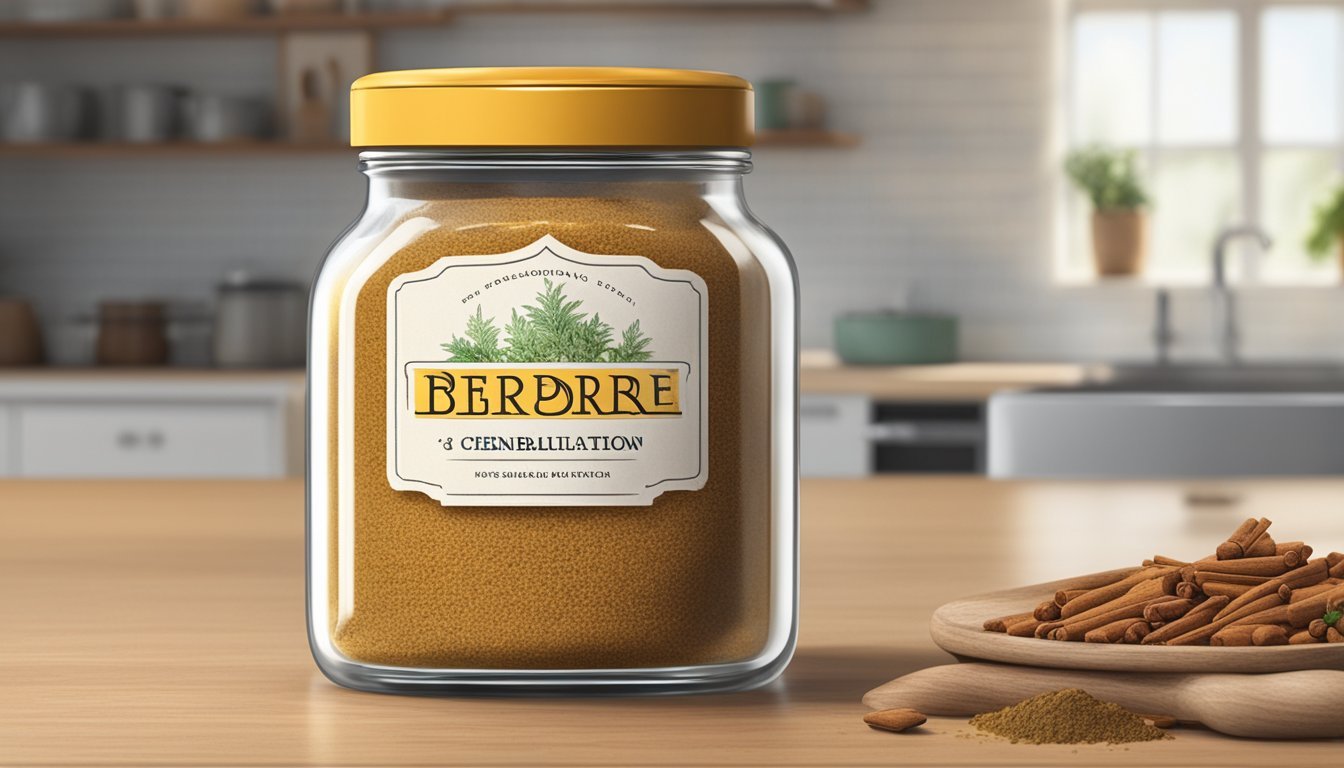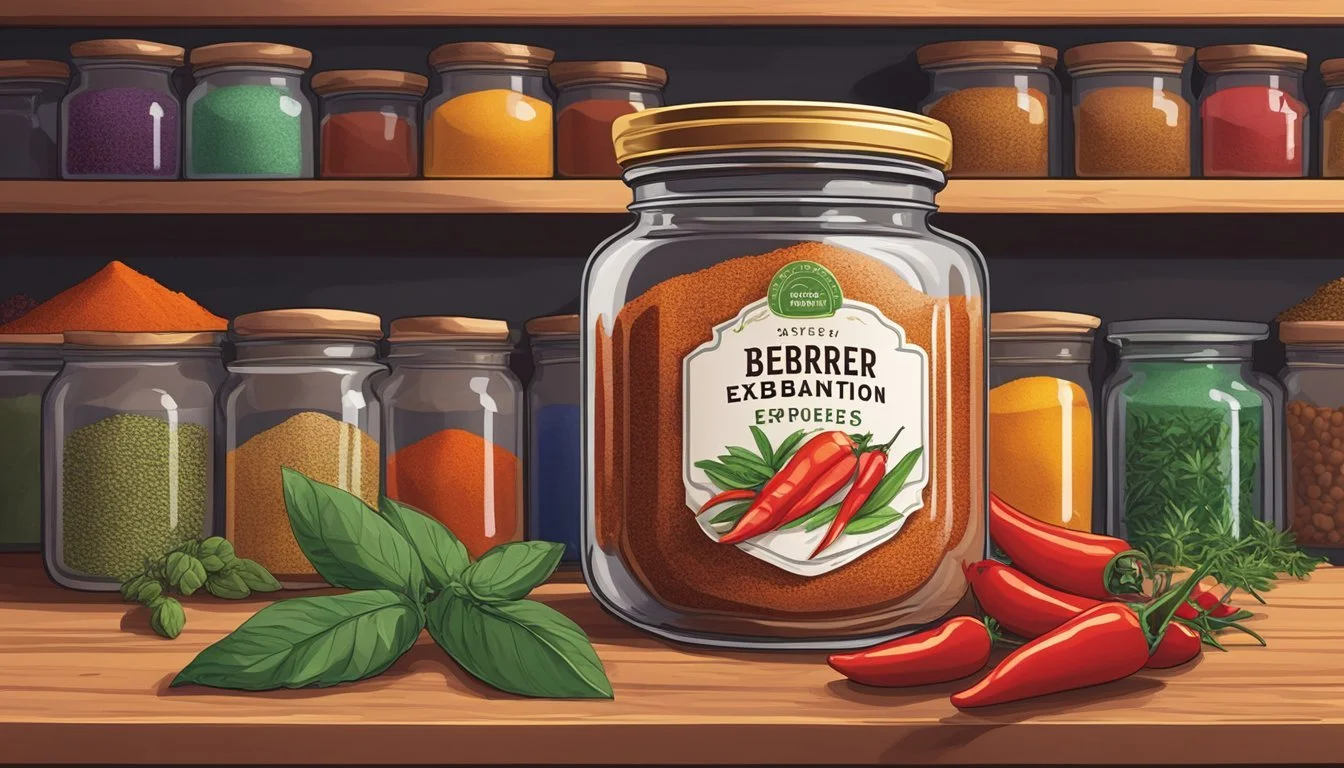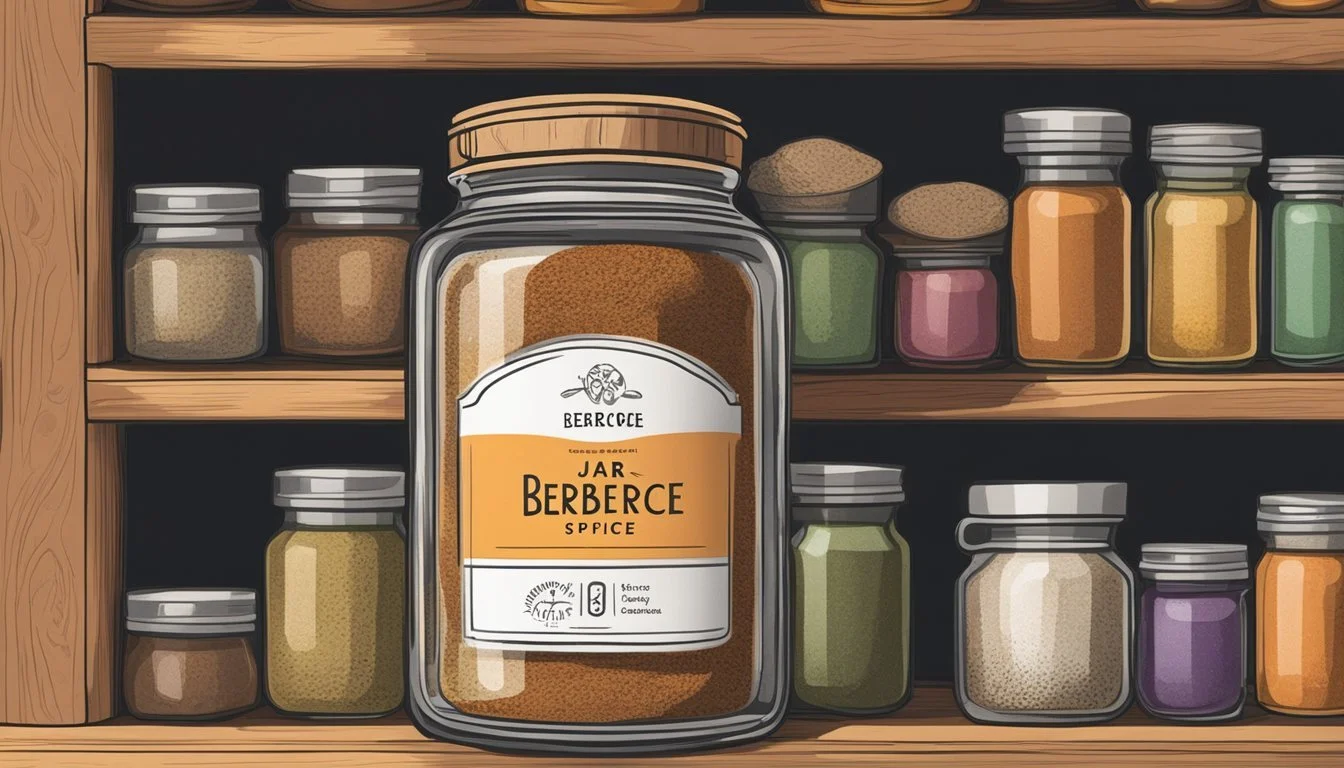Does Berbere Go Bad?
Shelf Life and Storage Tips
If you've ever explored Ethiopian cuisine, you've probably encountered berbere, a vibrant and aromatic spice blend essential to many traditional dishes. This potent mix can transform the simplest ingredients into a culinary delight. Storing berbere properly is crucial to maintaining its unique flavor and potency. Berbere, like all spices, doesn't go bad in the sense of becoming harmful, but it can lose its flavor over time.
To preserve its robust taste, berbere should be kept in an airtight container placed in a cool, dry area. Although it is technically safe to use beyond this period, its rich, complex flavors may diminish, eventually taking on a bland, woody note. Using it within six months to a year ensures the spice delivers the intended punch.
For those passionate about cooking, understanding the shelf life of berbere not only helps in planning but also guarantees that the dishes remain as flavorful as intended. By following proper storage practices, they can enjoy the full spectrum of flavors that berbere is known for, enhancing their culinary creations.
Understanding Berbere
Berbere, central to Ethiopian cuisine, is a complex spice blend with both cultural and culinary importance. It combines various spices, offering a unique flavor profile that enhances many traditional dishes.
Origins and Cultural Significance
Berbere originates from Ethiopia and Eritrea and is deeply rooted in their culinary traditions. It is considered essential in many homes and is often passed down through generations.
In Ethiopian cuisine, berbere is crucial for dishes like Doro Wat, a spicy chicken stew. Its significance goes beyond flavor; it symbolizes hospitality and heritage. The preparation of berbere often involves family, reflecting its cultural importance.
Composition and Flavor Profile
Berbere is a complex mix of spices, each contributing to its unique taste. Common ingredients include chili peppers, ginger, garlic, fenugreek, cardamom, allspice, cloves, paprika, salt, cinnamon, and turmeric.
The spice blend delivers a mix of spicy, sweet, and citrus notes. Chili peppers provide heat, while cinnamon and cloves add warmth. Turmeric and cardamom contribute to its aromatic qualities.
This combination makes berbere versatile, enhancing meats, vegetables, and legumes. It can even be used as a meat rub for grilling or frying.
Health and Nutrition
Berbere, a spice blend commonly used in Ethiopian cuisine, comprises various spices known for their health benefits. Key components like berberine and other spices contribute to managing conditions such as diabetes and high cholesterol.
Benefits of Individual Spices
Berberine: Berberine, found in some berbere blends, is known for its potential to manage diabetes by lowering blood sugar levels. Studies indicate it may improve insulin resistance and aid in weight loss. It has also shown promise in reducing cholesterol and triglycerides, contributing to heart health.
Garlic: Garlic, a common ingredient in berbere, can lower blood pressure and cholesterol levels. Its antibacterial properties help combat infections. Regular consumption may aid in improving heart health and managing blood lipids.
Ginger: Ginger, included in berbere, is known for alleviating digestive issues and reducing inflammation. It may help lower blood sugar levels and improve heart disease risk factors, making it beneficial for those with high blood pressure and diabetes.
Fenugreek: Fenugreek seeds, often found in berbere, have been linked to improved blood sugar control and reduced insulin resistance. They may also aid in lowering cholesterol levels and supporting liver health. Fenugreek is traditionally used to treat digestive issues and constipation.
Cumin: Cumin, another component of berbere, may boost digestion and provide antioxidant benefits. It has been used traditionally to support liver health and improve cholesterol levels. Its anti-inflammatory properties can also help with various chronic conditions.
Coriander: Coriander seeds, used in berbere, are known for their digestive benefits and ability to lower blood sugar levels. They may also help reduce cholesterol and triglycerides, supporting cardiovascular health.
Paprika: Paprika, present in berbere, contains antioxidants that help fight inflammation and support heart health. It may also assist in managing blood pressure levels and providing a nutritional boost with essential vitamins like vitamin A.
Shelf Life and Preservation
Berbere, a spice blend from Ethiopia, can have varying shelf lives based on several factors, including storage conditions and whether the spice is whole or ground. Understanding these factors and proper storage techniques can help maintain its freshness and flavor.
Factors Affecting Berbere's Longevity
The longevity of berbere mostly depends on its form—whether it’s whole or ground. Whole spices in the blend generally last longer, up to 5 years, due to their slow degradation rate. Ground spices have a shorter shelf life of about 1 to 3 years.
Heat and light can also deteriorate berbere faster. Exposure to high temperatures and direct sunlight can cause the spices to lose their potency more quickly. Moisture is another critical factor; if not kept dry, the blend can clump and spoil.
Signs of Spoilage
Mold is a clear indication that berbere has gone bad. Visible mold growth or any form of dampness suggests contamination. Loss of fragrance is another sign; berbere that doesn't smell strong anymore is likely past its prime.
Another indicator is a discoloration. Fresh berbere should have a vibrant red color. If it looks faded or dull, it’s a sign of prolonged exposure to light or air. Lastly, changes in flavor are telling, too. A stale or off-taste means the spices have degraded.
Proper Storage Techniques
To maximize the shelf life of berbere, store it in an airtight container. This prevents exposure to air and moisture, both of which can speed up spoilage. The container should be kept in a cool, dry place, like a pantry, away from heat sources like stoves or direct sunlight.
Some people also opt for storing berbere in a refrigerator to keep it cool. When using the spice, ensure that utensils are completely dry before dipping into the container, to avoid inadvertently adding moisture to the spice blend. These steps help in retaining the flavor and aroma of the berbere over time.
Culinary Uses of Berbere
Berbere is a versatile and flavorful spice blend that shines in both traditional Ethiopian dishes and modern fusion cuisine. Its complexity and heat make it a sought-after ingredient for creating rich and spicy flavors.
Traditional Ethiopian Cooking
Berbere is a cornerstone of Ethiopian cuisine. It features prominently in stews like doro wat, a traditional chicken stew made with berbere, onions, garlic, and ginger. The blend adds a spicy and aromatic depth to the dish.
Berbere is also used in awaze, a spicy paste frequently served with injera, the Ethiopian flatbread. This combination delivers a potent burst of flavor and heat. Ethiopian meat dishes, especially lamb and beef stews, often rely on berbere to enhance their taste and complexity.
Fusion and Modern Recipes
Beyond traditional uses, berbere has found its way into modern and fusion cooking. Chefs incorporate it into meat rubs for grilling or roasting, bringing an Ethiopian flair to diverse cuisines.
It also elevates vegetable stews, soups, and even roasted vegetables. In fusion dishes, berbere can be mixed into marinades, giving a unique twist to barbecued meats or seafood. Its spicy profile pairs well with sweet ingredients, making it a surprising yet delightful addition to fruit-based dishes.
Experimenting with berbere opens a world of culinary possibilities, infusing dishes with its unique blend of flavors. Whether in traditional stews or innovative recipes, its distinctive taste can transform any meal.
Substitutes and Alternatives
Finding a substitute for berbere can be straightforward if you know the flavors it embodies. Several spice blends and individual spices can serve as alternatives.
Harissa is an excellent choice. This North African chili paste contains chili peppers, cumin, coriander, and garlic, offering a spicy and flavorful taste similar to berbere.
Tandoori Masala is another good option. This blend includes ingredients like coriander, cumin seeds, fenugreek, cinnamon, ginger, black peppercorns, nutmeg, cloves, and cardamom, providing a complex and aromatic profile.
Garam Masala can replace berbere in many dishes. Its combination of cinnamon, cloves, cardamom, and other spices makes it versatile for various recipes.
Baharat also works well as a substitute. This Middle Eastern blend typically contains black pepper, cinnamon, coriander, cumin, and cloves, mirroring some of the flavors found in berbere.
For those who need a simpler option, cayenne pepper can be used. While it lacks the complexity, cayenne provides a comparable heat level. Use one tablespoon of cayenne for each tablespoon of berbere.
Ras el Hanout offers another robust alternative. This North African blend includes ingredients like cinnamon, cumin, coriander, and ginger, closely mirroring berbere’s spicy and aromatic qualities.
Here's a quick reference table:
Substitute Key Ingredients Harissa Chili peppers, cumin, coriander, garlic Tandoori Masala Coriander, cumin seeds, fenugreek, spices Garam Masala Cinnamon, cloves, cardamom, spices Baharat Black pepper, cinnamon, coriander, cumin Cayenne Pepper Pure capsaicin-based heat Ras el Hanout Cinnamon, cumin, coriander, ginger
These substitutes can ensure your dishes remain flavorful and aromatic even when berbere is not available.
Potential Risks and Considerations
When using berbere, it's important to be aware of potential risks to ensure a safe and enjoyable culinary experience. This section addresses possible allergens and how berbere might interact with certain medications.
Allergy and Sensitivity Information
Berbere, a blend of spices, may trigger allergies in some individuals. Ingredients like chili peppers, garlic, or ginger can cause allergic reactions.
People with nightshade allergies should be cautious due to chili peppers. Symptoms of an allergic reaction include itching, swelling, hives, and difficulty breathing.
Besides common allergens, berbere can cause gastrointestinal discomfort for sensitive individuals. Side effects might include diarrhea or gas if consumed in large amounts. For those new to berbere, start with a small dosage to gauge tolerance.
Include berbere sparingly initially, then monitor for any adverse reactions.
Interaction With Medication
Berbere contains potent spices that may interact with medications. For individuals on heart or blood pressure medications, ingredients like garlic and ginger in berbere can affect medication efficacy.
Garlic, in particular, could interact with blood thinners, increasing bleeding risk. Consult a healthcare provider if taking these medications before adding berbere to your diet.
Patients with sensitivities to spicy foods should be aware of increased gastrointestinal side effects, especially if on medication that affects the digestive system. Using berbere as a supplement should be discussed with a healthcare professional to avoid adverse interactions. Ensure to follow the recommended dosage and not overconsume.
By understanding these risks, one can use berbere safely in meals.







